#bill skargard
Explore tagged Tumblr posts
Text

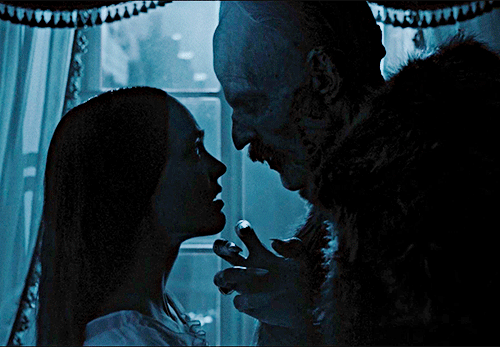



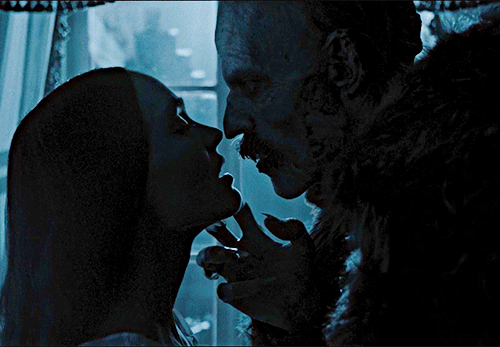
NOSFERATU (2024) dir. Robert Eggers
#nosferatu#nosferatu 2024#nosferatuedit#ellen hutter#count orlok#movieedit#lily rose depp#bill skargard#nosferatu spoilers#filmedit#filmgifs#moviegifs#horroredit#userchristineb#dailyflicks#usertj#junkfooddaily#useremory#tuserdana#userscary#horrorgifs#tuserbailey#userbbelcher#chewieblog#useranimusvox#userairi#userangelic#userstream#ellen x orlok#orlok x ellen
495 notes
·
View notes
Text

Bill in the remakes 🌞🌙
Meme day and night mode
#artists on tumblr#fanart#my art#illustration#nosferatu#pennywise#bill skargard#bill skarsgård#nosferatu 2024#horror art#horror#day and night#meme day and night#count orlok#conde orlok#orlok
127 notes
·
View notes
Text

“It was clear to me from the beginning, and from what Rob [Eggers] was saying to me, it’s a love story with Count Orlok as much as it is with her husband. There’s a real love triangle there. And, especially my scenes with Bill [Skarsgård], Rob wanted there to be a palpable sensuality between the two characters. And I think it serves the story as well, because it makes things so much scarier. It’s so much scarier to think there’s a yearning going from, you know, really, between the two of them, rather than just this woman who’s kind of chased down by this scary demon that she, like, hates. She carries so much darkness within her, and that he, in a way, is a manifestation of that darkness. And so she’s pulled towards him for a reason. and she calls out to him […] there’s a mutual yearning there, and I think it makes the story so much more engaging, and so much scarier.”
Lily-Rose Depp discusses the love story between Ellen, Count Orlok and Thomas
#nosferatu 2024#Robert Eggers#Ellen Hutter 2024#count Orlok 2024#lily rose depp#bill skargard#Ellen x Orlok#orlok x Ellen
105 notes
·
View notes
Text




Nosferatu (1922)
Nosferatu (2024)
#horror#horror movies#horror movie#movie#movies#gifs#gif#horror gifs#horror gif#my gif post#my gif#my gifs#horror edit#horroredit#gifset#nosferatu#nosferatu 1922#nosferatu 2024#max shreck#bill skarsgård#bill skargard#my gif edit#my gif pack#20s horror#2020s horror#1920s horror#robert eggers#20s horror movie#20s horror movies#2020s horror movie
48 notes
·
View notes
Text

— NOSFERATU, (2024).
Part One, 500 Screencaps.
Part Two, 500 Screencaps.
Part Three, 498 Screencaps.
Part Four, 309 Screencaps.
Download, (4.25GB). Like or reblog if it was useful, every interaction shows us that we should keep making screencaps for y'all ♡
#screencaps#nosferatu#nosferatu 2024#lily rose depp#nicholas hault#bill skargard#emma corrin#aaron taylor johnson#willem dafoe#screencaps of movies#movies#packs for download#pack of screencaps#movies screencaps#horror movies#horror movies screencaps#coral#2160p#yeahps#rp resources
38 notes
·
View notes
Text
Reposting this because Nosferatu finally came out on digital!
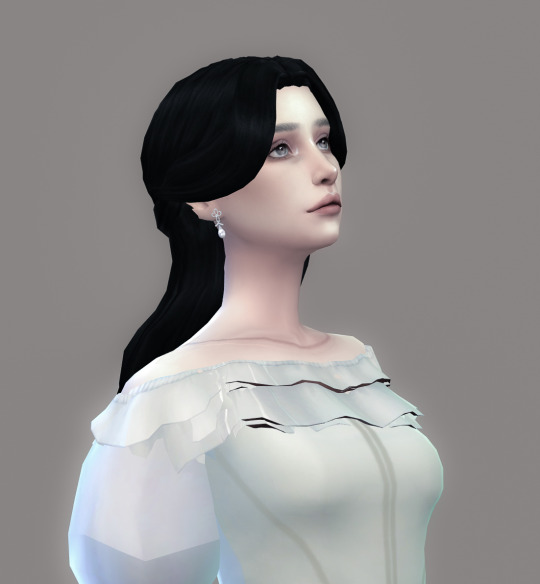



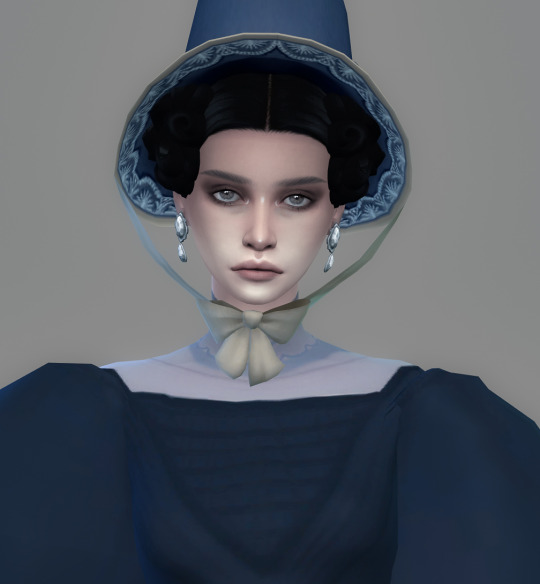
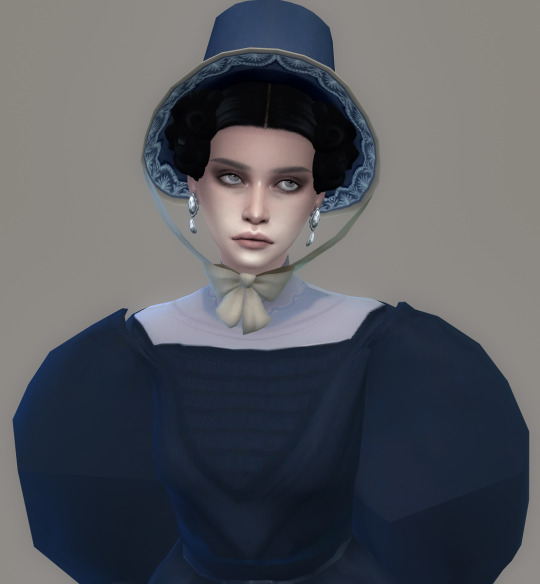
Come to me
Watched Nosferatu last night and can't get over how good it was!
#sims 4#ts4 cc#ts4#sims 4 cc#the sims 4#the sims cc#sims 4 cas#the sims#lightroom#edit#sims community#nosferatu#lily rose depp#bill skargard#count orlok
21 notes
·
View notes
Text

Dream of me. Only me.
#nosferatu#nosferatu 2024#lily rose depp#ellen hutter#bill skargard#count orlok#gothic#movie#movies#cinema#film#art#artist#artists on tumblr#drawing#fanart#artwork#digital art
2K notes
·
View notes
Text
is this a safe space?






the crow 2024
#black fem reader#black reader smut#the crow#bill skarsgård#bill skargard#bill skarsgard fanfiction#bill skårsgard#bill skarsgard x reader#bill skarsgard smut#bill skarsgard imagine#bill skarsgard icons#goth#gothic#dark romance#dark romanticism#dark romantica#dark core gothique#need him in my mouth#i need a man#need him#need someone to literally come back from the dead and avenge me
2K notes
·
View notes
Text



NOSFERATU (2024) dir. Robert Eggers
#nosferatu#nosferatuedit#nosferatu 2024#nosferatu film#nosferatu gif#vampire#vampireedit#horror#horroredit#horrorgifs#horror gifs#horror films#gif#edit#film#movie#filmedit#movieedit#robert eggers#bill skargard#lily rose depp#nicholas hoult#gothic#gothicedit#count orlok
738 notes
·
View notes
Text




Bill Skarsgård attends the premiere of "Nosferatu" in Los Angeles
#bill skarsgård#bill skargard#bskarsgardedit#gif#billskarsgardedit#dailymenedit#dilfgifs#dilfsource#mancandykings#flawlessgentlemen#mensource#userchristineb#userbbelcher#dailycelebs#dailymensource#usersavana#usermattz#underbetelgeuse#gaybuckybarnes#userpedro#userdori#userdaniel#userpayton#userbrittany#tw flashing#pls
785 notes
·
View notes
Text
Me and the Devil | Count Orlok x Reader
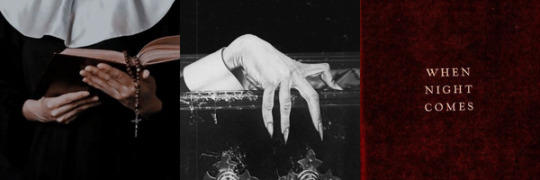
summary: You're a nun at an isolated convent. He is in your mind, eating away your mind bit by bit, soon destroying the pillars of your faith. Until you have no choice but to surrender to him, he will destroy all that is necessary.
warnings: He's a vampire. Of course he doesn't have to play fair, does he? There is mind control and there are some rather bloody deaths. I don't think I'm really good with that, I don't think it's too heavy, but it's good that there's a warning.
:: We girls can't bear to see a vampire who is completely obsessed with a woman, who will spill as much blood as it takes to get her, and who has already fallen in love with her. I'm completely obsessed by Nosferatu, even though I couldn't get a screening where I live. This is basically my brain being eaten away by Bill Skarsgard's hunger… I'm always hungry for Bill, but at this point in time I could be kept in a secluded castle to give birth to all of his babies, and I mean that. I hope you enjoy this. By the way, good luck in 2024!
The high-pitched squeak penetrated the stones of the convent, seeping like moss into the soft, bumpy cracks in the porosity, and imitated the soft voice of a wanderer saying a prayer in a dead language, older than time. His understanding was forgotten by men, but that didn't silence him. That voice was still preserved in the air that surrounded you like a thick mantle covering a thick cotton habit, as light as the coat of a holy lamb, which covered you from head to toe in a sacred enclosure.
Through the narrow window of his room, all that showed were the orange Carpathian mountain ranges in the middle of a mild autumn, with the taste of hot tea and the smell of a fire burning in the evening, when the temperature dropped at night.
The mountain ranges and that stone fortress, far from the convent and yet terribly close.
Every day, the castle seemed to move. When you weren't watching it with your stoic expression, it seemed to grow tentacles over its foundation and creep up slowly. Depending on the day, it seemed further away, with only the tip of its towers appearing between the hills. But when you were getting ready for bed, tucked up in the modest comfort of your little room and wrapped in the soft blanket of your nightgown, the castle seemed terribly close to you, so close that you could feel its evil aura as you raised your hand in a vain attempt to touch it.
He was calling you. A strength, a terror, a hungry longing.
Come to me, my eternal beloved.
Tormented, you choked on your own breath. The deep, seductive sound of that voice crept under your blankets at night, and under the modest garments of your nightgown, finding your soft, easy-to-creep skin. His touch was physical, even if you often groped your skin in search of those hands and found nothing but loneliness, and intimacy. So intimate that not even the devil himself, cruel and cunning, could emulate such evil in his attempt to corrupt the Lord Jesus in his trial in the desert.
It scared you.
The feeling of intimacy that belongs to something, that is lost until it is regained. That invisible hand, as well as the voice that only you heard, shook your sense of self and made you feel the narrow mattress slipping off your back, the thin blanket sliding off your body and your fear of dissolving as you floated above the bed. A demonic, ghostly vision, with your eyes rolled back in a trance that nothing and no one could stop.
You felt it, more intimately than you felt anything else, and that was scarier than any of the other traps in hell.
♰♰♰♰♰♰♰♰♰♰♰♰♰♰♰♰♰♰♰♰♰♰♰♰♰♰♰♰♰♰♰♰♰♰♰♰♰♰♰♰♰
— My child — greeted the voice on the other side of the wooden confessional booth. The only voice you could turn to in times of extreme need. Father Lengyel was an elderly authority in the convent, as was Mother Superior Illés. If it hadn't been for that, you wouldn't have had the courage to confide in him your greatest fears, seeking the reassurance of his gentle voice. — In your praiseworthy stillness, I can see that something is troubling you. You owe me your ordeal, child.
— Father, help me! — Tired and sleepless after a night awake, with your knees against the floor praying to ward off the tentacles of evil, you felt your eyes grow heavy as you saw the low, hunchbacked shadow of the priest. — I'm cursed. I didn't do anything about it, but I know that the shadow that haunts me was born with me, wrapped around me like an umbilical cord that has never been amputated. I feel it and sometimes I hear its impatience calling my name.
— Fear not, my child. No shadow of a curse is stronger than our Lord's mercy on your spirit, waking you up every morning with a breath of life.
But maybe it's not our Lord, you thought bitterly. You almost disbelieved that God would even work in your cause, probably deciding to wash his hands of you and leave you alone on your ordeal. This thought angered you, wondering how God, your holy God to whom you dedicated your time and efforts to serve with blind devotion, could leave one of his daughters helpless when the claws of the nefarious one threatened to entangle her?
And anger, even though it was blasphemy with your Father, was easier to manage in your restless spirit than the fear that perhaps God hadn't let go of your hand. Perhaps he was there, following in your footsteps not long ago, weeping blood for not being able to do anything to prevent the evils that awaited you. Maybe there were forces greater than the salvation you blindly tried to reach like a child afraid of the dark.
That thought you swept from your mind, because if that thing was stronger than the Savior you were turning to, there would be no reason to be reluctant in its evil call.
— I beg you, Father, with all the infinite goodness of your being, pray for my soul.
— I will, my child. You too, pray for wisdom and that the Lord, in his infinite love, will bring you comfort.
When you left the confessional, you got down on your knees in front of the proudly erected altar. The suffering face of that poor man in his moment of greatest difficulty never comforted you, but inspired you. If even he, the son and Messiah, found the purpose to remain firm on the narrow road of faith, you too would find the strength to stay in the light. You would have to pass through that tortuous valley to have your healing.
♰♰♰♰♰♰♰♰♰♰♰♰♰♰♰♰♰♰♰♰♰♰♰♰♰♰♰♰♰♰♰♰♰♰♰♰♰♰♰♰♰
You weren't the youngest in the convent, but you weren't the oldest either. When you arrived, with your only bag with a few belongings and a photo of the home you grew up in, the home that always seemed unworthy of your torments about the terror that was trying to get its claws into you, there were older girls who took you in as a younger sister, teaching you the trade so that you could also teach those who came to the convent after you. This was the mission: you didn't serve God's pure purpose alone, but learned from your sisters so that you could teach others in a cycle that stretched out like an infinite patchwork quilt.
Among his protégés, the young Agnes was the most cherished. So young and intelligent, she was your faithful dog in the convent corridors. Agnes, who came from a poorer and more literate family than yours, found comfort in listening to you read the Psalms, the book they were given to study. Agnes' chubby cheeks and earthy brown eyes reminded you of the child you would never have, the one you could never run your hand through and love. The Lord was merciful to you in giving you a sister to fill that void and you gave her all the attention you could. Your beloved Agnes sat next to you while you ate your lunch in silence. The soup was thinner, to save supplies for the harsh winter, and the bread was smaller. All deposits were saved and all fasting was done in summer and fall, because in winter your bodies' strength was tested by the ice that seemed to be trying to infiltrate your bones. They would have to eat better to survive until spring.
Next to him, young Agnes choked on her bread.
— Eat slowly.
— Pardon me, sister! — She stopped eating, lowering her head as if she expected to be punished. You smiled, running your hand over your protégé's head.
— Don't be like that. I'm talking for your own good, chew better, it also helps to fill your stomach.
The girl turned her face towards you with a soft, youthful smile.
A low, loud sound caught their attention. It was as if the ceiling had broken, so you looked up in doubt, but it seemed as firm as ever. Surprised gasps and the sound of footsteps moving across the stone floor made you stand up and look around, at the shocked faces of your sisters.
— Stay behind me, Agnes. — You stood in front of the girl, shielding her with your body, while you searched for the cause of the commotion among the others.
Another thud made you find the source of the terror. Your older sister, a girl so genuinely kind that she wouldn't mind giving up her own shoes and going barefoot if she had to. Olga. Olga, who was so generous that she always presented the others with little embroideries on old linen handkerchiefs, making them priceless pieces. Olga who hugged you as soon as you arrived, immensely happy as if you were a relative she hadn't seen for years and who was returning home. Your beloved sister Olga's nose was covered in blood and her front teeth were in an equally miserable state. Her blue eyes were completely covered by dark pupils, making them animalistic as she looked around at the familiar faces until she stopped at you.
She gritted her teeth painfully, teasing the veins in her neck. Olga no longer knew you. She didn't look at you like her younger sister, but with anger.
— Ungrateful! Damn you! — She pointed her slender, cocked forefinger, the knuckles seeming to ache with the effort. — Ungrateful and damned, unfortunate creature! Look what I do to what you love so much, look what I do to the object of your efforts!
Olga moved her face away from the table enough to almost fall backwards, gripping the edge of the table with her fingers tightly, before putting all her strength forward and, with a hollow sound of something breaking, smashing her nose against the wooden table. The noise tore you apart. Young Agnes' arms wrapped tightly around your waist as you pushed her back.
Mother Illés rushed into the dining hall.
She gave you an appeasing look and you understood. With agility, you gathered all the younger girls, totally terrified, and asked them to follow you out while Olga, surrounded and supported by her older sisters, screamed:
— Love me! Devote yourself to me! Command me if you wish, but don't ignore me, my beloved, don't deny me, for I am your lord and savior! I am the master of your pure and tormented soul, my beloved!
But you, terrified, denied his call once again. You covered your ears as you led the girls into the courtyard outside. The dry autumn wind enveloped you, your voices, but did nothing to muffle the terror in your minds. Little Agnes was still wrapped tightly in your body and soon the others followed suit, seeking warmth in your shivering, freezing body. Concentrating on them, on reassuring them, took your mind off the torturous thought that, yes, he was impatient.
All those years of “tranquility” were his gift, his way of making you surrender voluntarily. But he was lonely. He was hungry.
Now he controlled Olga's body.
But not just her.
That same night, while Olga was tied to her bed under the watchful eye of Mother Illés, Annabeth began to dance as she blew out the candles. You didn't see it, you were busy with your chores, but the others saw it and told you about it in sad, frightened voices. Annabeth, so young and playful, began to twirl around and the others thought she was just playing. The girl liked to play games, hiding pine cones under her pillows and little flowers in the sleeves of her habits.
She spun around mesmerized, spinning faster and faster and more violently. Her feet seemed bewitched and she suffered without even being able to move her mouth to do so, her teeth clenched in a painful grind as her jaw unhinged. The candles on the altar grew, fueled by something supernatural and unworthy, dancing along with young Annabeth.
That macabre dance ended in a tableau and the flames touching the young woman's habit. The fire consumed her without anyone being able to put it out; no amount of water could stop the flames. They consumed Annabeth until there was nothing left. In her death, she said nothing, but tearing her clothes to get rid of the fire, her name was torn into the soft skin of my body. Her name was everywhere, written with love, sorrow and anger. Like a love-hate letter, he wrote to you through the skin of an innocent girl.
♰♰♰♰♰♰♰♰♰♰♰♰♰♰♰♰♰♰♰♰♰♰♰♰♰♰♰♰♰♰♰♰♰♰♰♰♰♰♰♰♰
You hadn't slept a wink for three nights.
At the slightest sign of unconsciousness, as you blinked your eyes a little more slowly, it was as if he was lurking there waiting to take you, and this made you resist even though your body could barely stand.
The mother didn't let you take part in the funeral, allowing you only a brief farewell before you were taken to your chambers to rest.
You didn't want to rest.
Even so, you didn't have the strength to move. Perhaps it was tiredness or apathy, the feeling that all your efforts were useless.You lay there in your narrow bed, watching the day fade away through the shadows on the wall.
The night was his territory.
Night was when he hid in the wind and entered his room.
Even though he wanted to, there was no voice in his throat to scream and a hot tear ran down his left eye.
The door to his room opened and, to his relief, Father Lengyel entered his room. The black cloak swirled solemnly around him, like something divine coming to his rescue.
— What ails you, my dear!
— A large, slender hand, smelling of scrubbed earth, touched his face. There was a certain softness to it, even though the ice in your palms made you sigh with the thermal shock. — My poor little lamb!
The man held your face lovingly, with such care that you simply let go, allowing yourself to cry in dismay at his attentive care. Father Lengyel, so small and twisted, sat on the edge of your bed. A candle burned on the chair on the other side of the room, the glow of the fire casting shadows on the wall next to your bed and leaving you cloaked in that lonely corner. Father Lengyel kissed your cheek, with those closed, dead lips, so cold they made you shiver.
— Father!
— Poor creature!
— My shadow is growing. — You confessed, leaning your face on the old man's hand. — My shadow consumed poor Olga and Annabeth, casting them into the valley of the storm.
Father Lengyel pulled the blanket away from your body and, in the narrow space that barely fit a body, he lay down with you. Your eyes widened as the man pressed himself against your body. The man you had always seen as a loving and attentive father, a listener incapable of the slightest judgment, lay beside you with the warmth of a lover.
— You curse us all, my sweet. — His mouth curved into a smile that only reflected darkness. — Everyone, everyone, everyone. My eyes, so blessed with the beauty of your soft skin and childish eyes, your sweet mouth and the shaggy strands of your eyebrows, became the object of his dark admirer's envy and, look, what he did to me.
In the short distance between your faces, that distance you wanted to increase at all costs, you could make out the old man's wrinkled features. His withered cheeks, the corners of his eyes creased by years and years of study and service to the church. His thinning hair was pearly white on his straight head, with little spots like freckles. The eyes, previously blue, weren't there.
In their place, there was the emptiness of two hollow holes whose darkness seemed to feed with pleasure.
The priest smiled in her direction.
— Smile, my dear. Who else in the world would be as adored and cherished as you? What other soul would be as worthy of all the fascination of eyes that have seen the rise and fall of empires as the rising and setting of the sun? There are worse ways to live. In complete ignorance, never seen and never remembered, gradually rotting away like this old man.
In an unknown breath, you felt the instinct to fight with the same strength as the archangels as you sat up in bed, your body trembling from the effort. The priest continued to lie there, moaning with satisfaction as he enjoyed the smell of your hair against the pillow where you had shed your tears.
He was totally possessed. The evil had taken hold of the most benevolent man you've ever had the pleasure of knowing, save only his own father, a man so generous that he gave up his beloved daughter to the care of a convent without ever doubting his desires to follow a holy life. All was lost.
You got out of bed, your legs wobbly as you dragged yourself out of the room. There were few lit candles and a long corridor. Carefully, you hugged your body and left your quarters, dreading the next demonic sight you would encounter on your way.
The convent seemed more alive than ever. A complete organism. The walls moved as it breathed and guided you in silence, the cold accompanying you like a guardian, a raven on your sullen shoulders. The moon was high in the sky, its pearly glow illuminating what not even candle flames could touch. And you walked, leaning on the walls, groping for balance. In the dining hall, where Olga's blood was embedded in the wood of one of the tables, you saw the shadows of the feet of all your beloved sisters and your devoted mother.
They all floated solemnly, with ropes around their necks. They all looked at you with pupils consumed by darkness and wide smiles, so big that they seemed to rejoice in your presence.
— My beloved! — cried Clara.
— Beacon of my darkness! — said Lucia.
— Don't you see, my beloved?
With dread, you walked around the tables, looking into their faces. Every single one of them. The rope wasn't taut, they were floating under the invisible force that kept them alive only for a brief moment. Just long enough for you to see them, to remember their names and their faces, their voices, their lives and their untouchable faith. Because they, like your Savior, had no power to stop the terrors you were cursed with at birth.
As soon as your cry marked his arrival in this rotten, petty and cheap world, he also felt the pain in his chest, where his lungs were supposed to work. Your soft cry marked the raw, lifeless gasp of the thing that woke up to take in its big, slender hands what was rightfully its: that poor soul, which had never found a single day's peace, shrouded in the melancholy of that fateful encounter.
Nothing could stop her soul from touching him, much less his emptiness from possessing her soul.
It was a perfect fit, an unspoken agreement between heaven and hell. God, all merciful, gave you up for the greater good. You were eternally linked.
And your sisters, mother and father paid the price for coming between the two of you, for taking you away from your true home and your true master. They filled your days with their miserable little lives, with miserable knowledge, with miserable privations for such... miserable glory.
— I have set you free, my beloved. I have loosened the nails that bound you to your cross. — Murmured the mother, with jubilant eyes, cheeks streaked with sweet tears. Your stern and beneficent mother. — My obsession is the key to this filthy, worthless prison. Come, darling, and enjoy with me all the pleasures you've been denied. Come quickly, my beloved, put an end to my loneliness.
His shadow has grown over you, outside in the courtyard.
— Spare them! I beg you! — Her voice roared over the tearful smiles of her sisters. Young Agnes wiggled her legs, looking at you with that untouched childish gaze, as if she were throwing herself into dense fluffy clouds and not into the abyss of death, into the blackness of darkness. — Spare them and I'll follow you without looking back. I will never desire anything other than your company, nor will I follow any other path than the one your feet once trod.
Your sisters' laughter exploded through the high ceiling, laden with a mockery that didn't belong to them.
Bewitched, they all looked down at you with equal dark amusement, their voices blending together like a spiral that drained the strength from your legs.
— Don't you understand yet, my holy lamb? — Smiled sweet Agnes. — There's no bargaining. Whether they live or die, you will still be mine.Even in death, I will pull you back and chain you to me. I myself have suffered many years of being bound to the prison of my desires for you, waiting for you for countless years, feeling the weight of your rejection, cruel lover.
— But you love me, don't you?
— Every part of me to every part of you, my sweetness.
— So give me these gifts. Spare my beloved sisters, my fellow human beings, those sweet women with pure hearts who have guarded me long enough for you to come and take your rightful possession. They are not guilty, but guardians. — On your knees, you clasped your hands to your chest, begging the devil for mercy. — I know I wasn't good to you, I was insensitive to your call, but they are not to blame.You'll have all my devotion if you spare them, but if you kill them, even though you have my body and my spirit, you'll never have a drop of my attention.
The silence of the souls hanging from the ceiling of the convent refectory echoed their inconsolable weeping.Thick tears and a plea so strong that it could make the souls turn over in their graves.
The doors opened in a rush, letting the cold wind enter the dining hall.
For the first time, under the ethereal light of the moon, as if in a macabre mixture of dream and nightmare intertwined by the thin veil of unconsciousness, you saw it.Not its aura or its agonized call, you saw the creature with your own eyes.
You, who know so little about men, had never seen such a figure.
So tall that you had to stoop to pass through the door that you would walk through without any difficulty.Eyes so deep that no light could reach them. A face hardened by the spectre of death, with a long nose and a thick moustache of a deep shade of black.He entered the sacred ground with equal parts ease and pain, each step a necessary torture to reach the object of his desire. The soul he so coveted in his millennial solitude, forgotten by the world, completely abandoned under the promise of a single soul that the heavens did not claim, a soul he could corrupt at will.
Yours to devour, he thought at first, perhaps resentful that he was also chained to a lowly mortal, a wandering and very basic creature. Yours to torment, he thought, when you were very young and saw his shadow in your room for the first time. Yours to worship, he realized now, pulling her by her bare arms to stand up.
The creature, hungry for something, for some compensation for its endless loneliness, brought its face close to his and, with a touch of malice, stuck out its tongue, licking the length of his tears with its cold, inhuman breath.
— I thought you'd wait for me in your habit, my beloved.I was particularly looking forward to it. — He lowered his cold, vile gaze, delving into the shape of your body beneath the nightgown with which you were forced to rest, a fabric so thin of light cotton that it hung down your body, revealing through the worn nature of the fabric the color of your stiff nipples against the fabric. He gasped with pleasure. — But what unparalleled pleasure it is to see you in such intimate attire, my eternal obsession.
His hands, holding her face, were huge, with large, aged nails. Nails that would have dug into the earth to escape the grave. Their coldness was uncomfortable, but, given the horrors in your mind, you found yourself accepting their touch as a shred of comfort.
It destroyed your sanity, that it would at least give you the soothing balm of a caress.
— Please! — you sighed with a breath, a breath as anguished as it was tired.
Your hands touched his, your eyes full of life and fear threatened his darkness with such a benevolent request, something the creature had never witnessed.
Those like you, mortals, used to beg for mercy on your own life, on your knees and with the greatest promises of riches and pleasures.And here you were, a soul who would never reach heaven, asking for mercy for others when it was your fate that was at stake.
How he loved you! How he hated you!
— Treating it as my personal gift and demonstration of my esteem, these women live by my ability to have mercy on the requests of your heart. — He approached your warmth, the steady rhythm of your heartbeat, the salt of your feverish skin. All his vitality was more than banal desire, he was madly fissured by every cell of his anatomy, every rudimentary bit of his mortal Anatomy, and so doomed to the horrors of putrefaction. — My eternal living flame, how it tormented me not to be able to touch it. How it torments me right now to feel the softness of your skin.
The creature's eyes mapped your face, his eyes so vivid and striking in color, the visage on your skin, the softness of his mouth as you breathed audibly, so bruised by fatigue that you didn't even budge when he wrapped you in his arms like a bruised little bird. Her soft sigh, nesting her head against his shoulder, was the fuel for him to release the women from their ropes, gently lowering them until their feet touched the ground.
— As long as you live, my ladies, be the witness of my triumph in having my sweet beloved in my arms for eternity.
He lowered his face in your direction, the ancient smell on his clothes made you scratch your nose.
The texture of his mustache was thick. When his funeral lips touched yours, you tried to resist. Never before have you felt the pleasure of a passionate kiss or a love that took your breath away. But he knew what he'd been waiting for, holding you tightly by the back of your head, wrapping himself around you menacingly as his mustache scratched and skin immaculate from his face. His lips were hard, demanding and hungry.
His mouth ate you as his last hope, the last of pleasures and torments, a feast for a dying man.
The exchange, life and death, touching each other for the first time ignited an impulse in you. The impulse that matched his kiss, because that was the deal. You gave in, letting your lips submit to the kiss. Your body was surprised as you gasped with pleasure at corresponding with him, stimulated by the passion with which he held you. The human body is capable of many bargains to continue resisting.
And you, who had resisted for so long, gave in to that bittersweet feeling of surrender, feeling it take against your body.
Her body gradually sank into the feeling of being supported. As her dark lover's lips devoured hers, the world became a darker and darker place, the hiss of the wind seeping into her ears like spilled poison. Between soft gasps, feeling the creature suck on his lips, unable to be completely satiated, his body gave in to the strain, falling into a powerful sleep. Realizing that you no longer corresponded with him, he walked away, looking at her with apprehension. His right hand, large and bony, rested on his chest.
The beating of his heart was quiet, yet powerful. Each beat rumbling softly against the bones of his chest.
Under the gaze of the bewitched nuns, he disappeared with the night, carrying with him the only one with whom he could share his eternal night.
♰♰♰♰♰♰♰♰♰♰♰♰♰♰♰♰♰♰♰♰♰♰♰♰♰♰♰♰♰♰♰♰♰♰♰♰♰♰♰♰♰
#count orlok#bill skarsgard x reader#bill skarsgard fanfiction#bill skargard#bill skarsgård#nosferatu x reader#nosferatu x you#count orlok x reader#count orlok x you
427 notes
·
View notes
Text
Bill Skarsgård - The Crow (4K)


















If you like the content, follow me on TWITTER as well <3
#bill skarsgård#bill skargard#bskarsgardedit#the crow#horror#horror movies#horrorgifs#moviegifs#filmedit#movies#Men in 4K#Hotmen#Hotguys#so hot#filmgifs#lgbt#gay
576 notes
·
View notes
Text
Resurrection, Death, Rebirth and Reincarnation in "Nosferatu" (2024)
Is it possible that Robert Eggers sneakily pulled a “Coppola” in his “Nosferatu”? This sounds insane but stay with me, while I try to unravel Orlok’s backstory.
“Nosferatu” (2024) left me with some burning questions about Ellen and Orlok connection (outside of the occult meaning), because Robert Eggers is a director obsessed with detail:
Why does Orlok want to be spiritually united with Ellen, forever? To the point of obsession, really; he traveled from Romania to Germany, and he’s willingly to kill everyone and spread plague in order to achieve it. His entire goal is to have Ellen’s soul by his side for all eternity, he’s consumed by it;
How come she understands him speaking Dacian (an Balkan extinct language for centuries)? Does their connection come with a translator device? In “Bram Stoker’s Dracula” is unclear if Mina understands Dracula when he speaks Romanian, but she recognizes his voice as familiar (she’s the reincarnation of his wife);
Why is lilac their signature flower? Native to the Balkans and also connected to rebirth. Sure, the Victorian symbolism of this flower fits them, but so could others. And it’s clear Eggers really wanted this specific flower, even if it doesnt fit the setting: because it blooms in the Spring, and the events of the film are set in Winter. Winter represents death, closure, reflection, despair and sadness, and rest, as nature is dormant and will rebirth and renew in Spring time, which symbolizes the circles of life, promises of new life, new beginnings, growth and fertility. According to Lina Muir, the costume designer, lilacs remind Orlok of when he was alive;
Ellen and Orlok are connected with every facet of life and death: resurrection, death itself and rebirth. Is it possible that “reincarnation” also fits here?
The Curse of Nosferatu
According to Adrien Cremene, in his “La Mythologie du vampire en Roumanie”, the strigoi myth dates back to the Dacians. The strigoi are creatures of Dacian mythology, troubled or evil souls, the spirits of the dead whose actions made them unworthy of entering the kingdom of Zalmoxis (more on the Dacians and Zalmoxis later). Which appears to be Orlok’s case? He probably did some terrible things in life which caused him to be cursed to become Nosferatu?
A strigoi isn’t necessarily a vampire; but it’s not excluded because they can feed on blood. They rise from their grave at night, wandering and creating havoc. Strigoi haunt their relatives; bring plague with them; feed off the heart of the living, and their life force; and being bitten by a strigoi doesn’t turn the victim into one. There are strigoi-viu (living; sorcerer) and strigoi-mort (undead), with the last being Orlok’s case, obviously.
What is believed to be the cause for this curse is diverse, but according to the encyclopedist Dimitrie Cantemir and the folklorist Teodor Burada in their book “Datinile Poporului român la înmormântări” (1882), it can be one among several things:
Physical characteristics that doom the person in life: being the seventh of seven brothers; being a redhead; etc.
Lead a life of sin;
Die without being married;
Die by execution for perjury (false oath);
Suicide
Die by a witch’s curse.
Other causes in Romanian folklore can be: violent past; “bad death” (violent death; lack of closure; conflicts with relatives); sorcerers and witches; or someone who can’t leave the living world because they can’t forget their loved ones.
And this explains why Herr Knock wanted to be violently killed by Thomas, near the end of the film: he wanted to become a strigoi, Nosferatu like Orlok (“prince of rats”), and wanted a violent death to seal the deal. But his covenant with Orlok is not the same as Orlok and Ellen’s.

“I relinquished him my soul. I should have been the Prince of Rats – immortal... but he broke our covenant... for he cares only for his pretty bride [...] She is his! [...] Strike again. I am blasphemy!”
Since Robert Eggers took the time to write a few pages on Orlok’s backstory, I doubt the explanation is something as simple as “he was a sorcerer” in life. Orlok having a violent past is also hardly surprising, since he was a warlord who most likely saw battle, violence is to be expected here. There’s no reason to be secretive about any of these options. Everyone is expecting Orlok to be evil incarnate when he was alive. The only reason for not letting us know about his past it’s because he’s probably a tragic character, and that would humanize him at the eyes of the audience, and break the horror theme.
And here is where it gets enigmatic; because Orlok was dead, and had been for centuries, until Ellen awoke him. It’s her crying prayer that rises him from his grave, and turns him into a strigoi. He didn’t enter Zalmoxis kingdom, though; because he says his soul was in “the darkest pit”.

We don’t know if Orlok died because of a witch’s curse; but he was risen from the dead by one (enchantress, witch).
In Romanian folklore, it’s said when strigoi raise from their grave the first time, they return to those they have loved the most, because they wish to relive their life together. The strigoi usually torment them until they are dead, too. Which is what we see in “Nosferatu” with Orlok and Ellen. But this can only be possible if Orlok had known Ellen in his human life; with her being the reincarnation of his wife or lover/bride he didn’t get the chance to marry.

In Romanian folklore, it’s said strigoi come at night, and appear at the window of their loved ones, asking for entrance
The theme of the strigoi lover is also a staple of Romanian Romanticism and stories of women and men being visited by their dead lovers were very popular, both in folklore and in high culture.
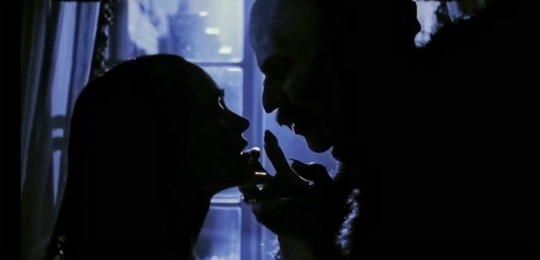
“Your passion is bound to me. […] I cannot be sated without you. Remember how once we were? A moment. Remember?”
The use of the term "sated" in this context is also curious, because, in Archaic English (which is what Orlok uses, being from the 16th century), it's connected to the verb "sit", which means rest or lie. "I cannot rest without you"; which makes sense with their whole deal being about them together ever-eternally in death. He can’t find peace in death without her spirit by his side.
Who is Count Orlok?
Eggers’ Orlok isn’t a random demon vampire; he was once a man.
Robert Eggers doesn’t want us to know the full backstory on his Count Orlok, but he wrote a novella on it and gave it to Bill Skarsgård. We know he’s a 16th century Transylvanian nobleman, from the 1580s (“lord” and “lordship”), he’s not Vlad the Impaler (he’s from the 15th century), he was a voivode (warlord), a sorcerer (Şolomanari) and he was married, and had a family.
Bill Skarsgård cited the Bulgarian epic “Time of Violence” as one of Eggers’ many inspirations for Orlok backstory. And, indeed, he lived during the Ottoman rule of the Balkans, but he wasn’t the prince. His castle is in Transylvania, which was a state under Ottoman supervision. Transylvania nobility led many rebellions against the Ottomans invaders (hence the legend of “Vlad the Impaler”, who’s considered a Romanian national hero).
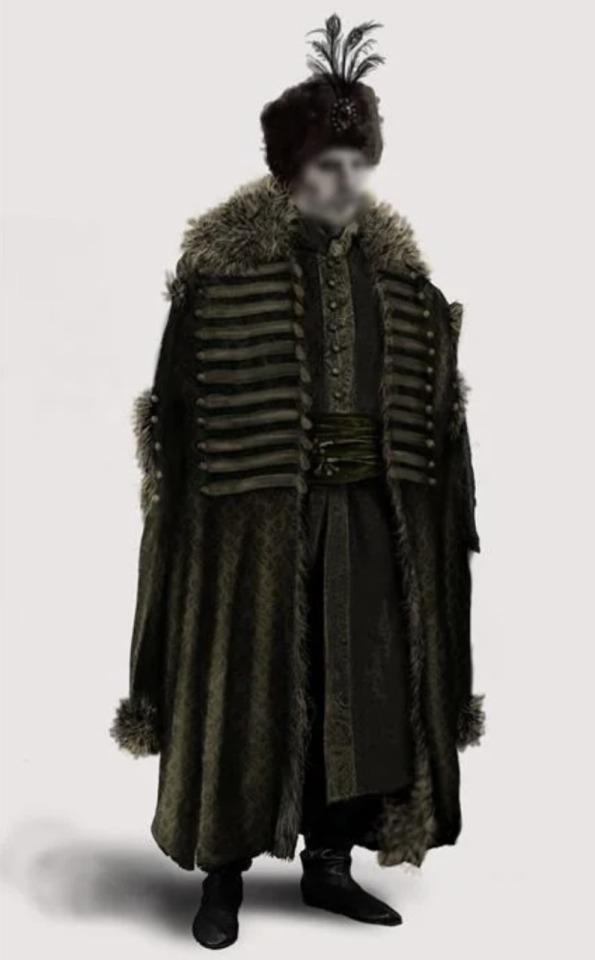
Orlok costume design (interesting his face is blurred, because he doesn’t look like a rotten corpse here)
In Bram Stoker’s novel (which is also one of the main inspirations for this film), Dracula is very proud of his boyar heritage when he speaks to Jonathan. In 2024 adaptation, we also see Orlok demanding Thomas Hutter (Jonathan cinematic counterpart) to address him as “lord”: “Your Lord. I will be addressed as the honour of my blood demands it.” A Romanian boyar is pretty much a “lord”, a feudal nobleman with a castle, administrative responsibilities (political) and/or military power. A “boyar” title could be hereditary (which seems to be Orlok’s case), or earned.
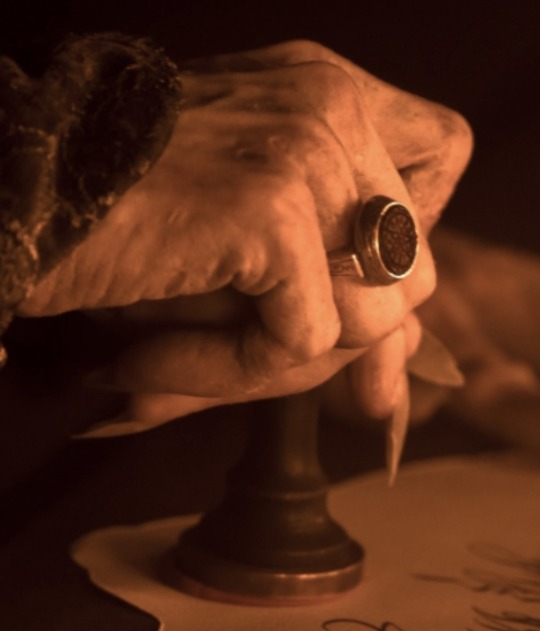
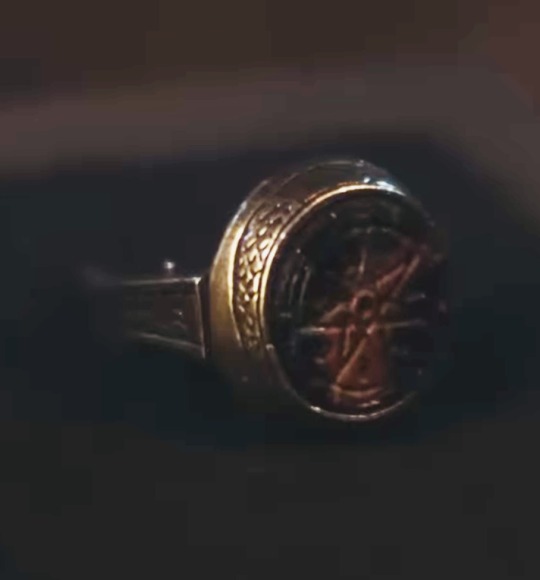
Orlok signet ring: with his own sigil. The gemstone appears to be rumanite, also known as “Romanian amber” (which comes in various shades of black, red and/or brown).
On his sarcophagus and on the mysterious cyrillic contract Orlok makes Thomas sign, we have Orlok’s coat of arms, and Robert Eggers, being obsessed with detail, crafts his worlds very carefully. “Coats of arms” is heraldic design, and were used by nobility.
Each “coat of arms” is unique to the individual (nobleman) and speaks of achievements, heritage, etc. “Coats of Arms” are traditionally composed by a shield, supporters, a crest and a motto, but might not have all of these elements. Orlok coat of arms doesn’t have a motto.
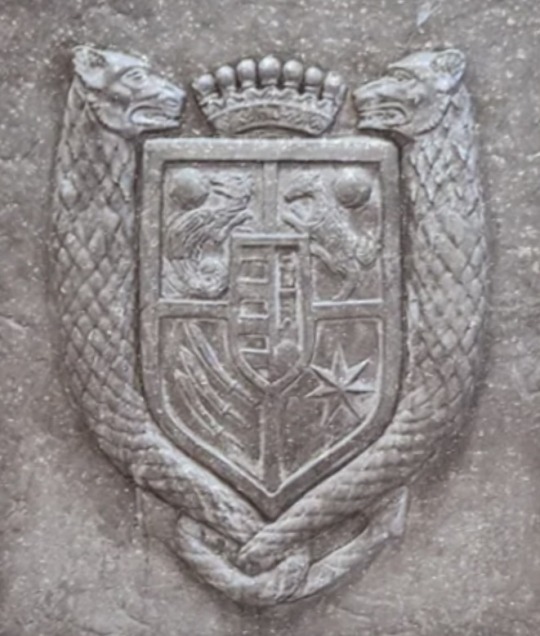
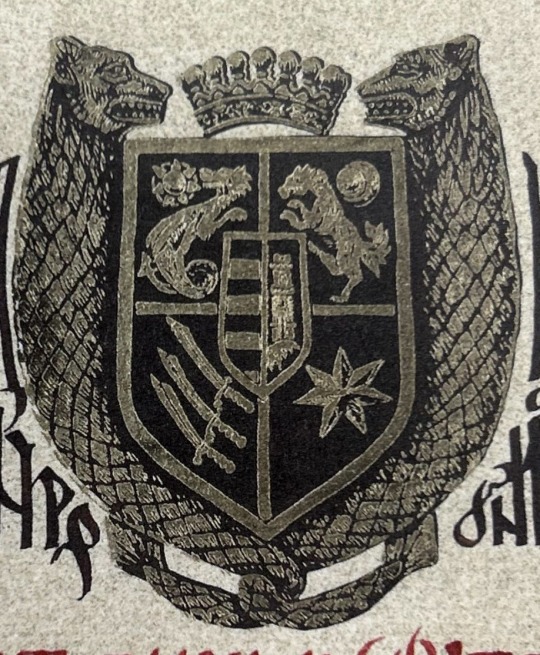
The crest is a crown. Which it’s probably connected with his noble lineage, and his role as sovereign of a county (count);
As supporters (holding the shield) we have two Dacian dragons (Draco) with their tails intertwined. Here, it’s a mix of dragon and wolf, a balaur (sky demon or “heavenly dragon”), and it’s connected to Zalmoxis. This dragon with a wolf head, was the Dacian battle flag. Orlok’s sarcophagus also has many Dacian wolfs. A historical note on the supporters; they were chosen by the nobleman and could change throughout his life, so these Dacian dracos were being used by Orlok at the time of his death, but he might not have used them all of his life;
The figures on the top, inside the shield, are a Dacian dragon with a sun or star; and a wolf with a crescent moon. Usually this star and crescent moon motif represent the Székelys, an ancient Hungarian sub-group (said to descend from the Huns), and with seats of power within Transylvania, on the hills of the Eastern Carpathian Mountains. Castle Orlok is located beyond the Árnyék Pass (also known as Umbră Pass) in the Carpathians, but this is a fictional place. Both “Árnyék” and “Umbră” mean “shadow”, in Hungarian and Romanian;
At the center, the shield is a Barry of eight fesse (horizontal stripes) or three bars, on the left (symbolic or military rank and recognition) and one tower on the right (symbolic or strength, protection, resilience of a stronghold, guarding its inhabitants from adversity and external threats);
1 Seven Rays (bottom, right), a star standing alone, probably a reference to his personal sigil (heptagram)?
3 sabers which seem to be Hungarian szabla (bottom; left). These swords were symbols of nobility and aristocracy (szlachta) The węgiersko-polska saber was popularized among the aristocracy during the reign of the Transylvanian-Hungarian King of Poland Stephen Bathóry in the late 16th century. Swords in heraldry are usually used as a symbol for military honor.
Now we are getting somewhere because Stephen Bathóry was Prince of Transylvania between 1576 and 1586, which fits the dates we have for Orlok: 1580s-1590s, late 16th century. The Báthory family ruled Transylvania as princes under the Ottomans until 1602.
We don’t know the dates for Orlok birth and death, but since Robert Eggers mentioned the 1580s and Lina Muir talked about the 1590s, I’m assuming these decades were important in his life, and he was already an adult. And he probably died somewhere in the 1590s since that’s the reference Lina Muir has for his costume design (which he was buried with): “Robert, right from the beginning, knew that he wanted his Orlok to be a representation of a Transylvanian count from around 1590.” In a interview to “Art of Costume”, the costume designer said:
“For Orlok, our research focused on the look of a Transylvanian-slash-Hungarian count from around 1580. He’s a character who was young and vital 300 years before the events of the film […] Even his enormous kalpak hat—a piece that would have been worn differently by a younger man—is now part of his strategy to hide the grotesque reality of being 300 years old.”
Robert Eggers also mentioned Hungary several times in association with his Orlok, because Transylvania was a Hungarian politically dominated principality. Orlok is also a count, the sovereign of a county, and the Székely had several autonomous seats within Transylvania; these were self-governing, with their own administrative system, and existed as legal entities. Their autonomy was granted in return for the military services they provided to the Hungarian Kings. Orlok also has a Hungarian royal army 16th century hairstyle, and military heraldry on his coat of arms, so he saw battle and/or military service.
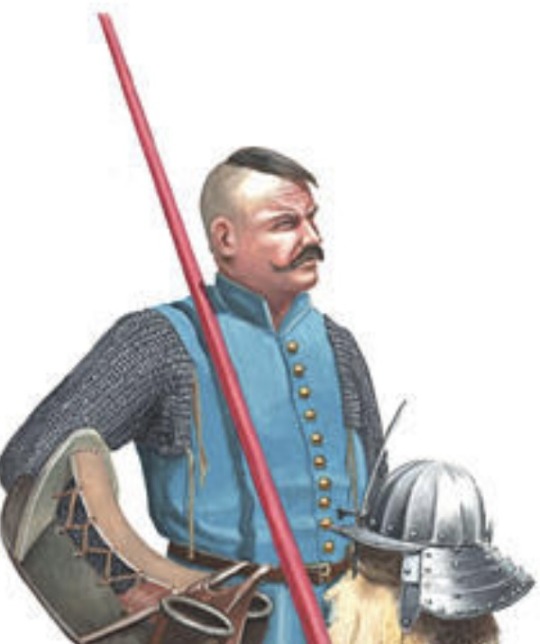
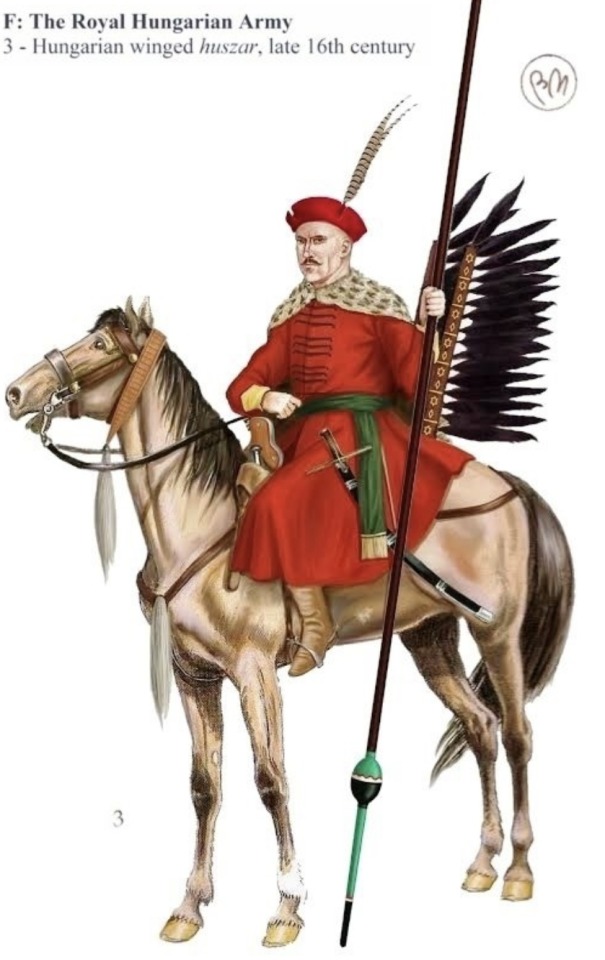
Orlok being of Székelys lineage is also aligned with the “Dracula” novel, where Count Dracula shares the same ethnicity: “We Szekelys have a right to be proud, for in our veins flows the blood of many brave races who fought as the lion fights, for lordship. . . . What devil or what witch was ever so great as Attila [the Hun] whose blood is in these veins?” The Székelys are said to be only true Transylvanians, because they guarded the land's borders long before the Magyar invasion and Hungarian rule. Their allegiance was only to the sacred soil of Transylvania, no matter who holds temporary political dominion over them, which also makes sense as to why Orlok/Dracula, on vampire form, needs to rest on their soil during daytime.
Men could become sovereigns really young in the event of their fathers deaths. Sigismund Báthory (we’ll talk about him in a minute) became prince of Transylvania at the age of six. And it’s the same with weddings; we have several cases of marriages at 14, 15, 16, and so on, throughout History. No idea what’s Orlok case.
Being a Count, Orlok was probably a hereditary member of the Union of Three Nations? Founded in 1438, and composed by Hungarian, Székelys, and Saxon noblemen of Transylvania. Their function was to provide mutual aid against Ottoman attacks and peasant revolts, and were successful for centuries. As a Count, Orlok wasn’t low in the aristocratic hierarchy; he was just two ranks below the Prince (Marquis and Duke).
Bill Skarsgård citing the Bulgarian epic “Time of Violence” as one of Eggers’ many inspirations for Orlok backstory, might indicate he probably was involved in the religious turmoil of Protestants vs. Catholics in Transylvania in the late 16th century. In the 15th century many Romanian noblemen converted to Catholicism; and in the second half of the 16th century, Transylvanian authorities forced their people to convert to Calvinism.
In the late 1550s, Protestantism began to spread in Székely villages due to Hungarian-speaking preachers, who promoted the theology of John Calvin (Calvinism). While the majority of the population remained Catholic, some Calvinist settlements joined the new Unitarian Church of Transylvania. In 1566, priests who didn’t convert to the “true faith” were expelled from the country.
However, when Stephen Báthory took power in Transylvania in 1576, restrictions began to arise, and Orthodox hierarchy was restored. Székely peasants demanded for their freedom, but were refused. As retaliation, hundreds of Székelys joined his opponent, Gáspár Bekes, who was defeated in 1575. As consequence, more than 60 Székelys were executed or mutilated, and Báthory's supporters received Székely serfs (slaves).
When Stephen’s sucessor, Sigismund Báthory, a Catholic, came to power in 1586, he wasn’t well-liked by the Union of Three Nations representatives, which tried to undermine his authority on several times, with plotting and conspiracies. The “Long War” (1591-1606) started; it began as a Christian alliance against the Turks, and became a four-sided conflict in Transylvania involving the Transylvanians, Habsburgs, Ottomans and the Romanian voivod of Wallachia led by Michael the Brave.
In 1593, Sigismund abdicated, and tasked his cousin Balthasar Báthory with the government of Transylvania, and he tried to seized the throne for himself, but was stopped by other leading officers who set up an aristocratic council. The commanders of the army, persuaded Sigismund to return, and arrest Balthasar and fourteen other noblemen for plotting. They were either executed (beheaded) or strangled in prison. Only one was Protestant, the others Unitarian. Many of their relatives converted to Catholicism to prevent the confiscation of their estates. Which side was Orlok?
In 1595, the persecution of radical Protestants began, and hundreds fled Transylvania. In that year, Sigismund married Maria Christina of Austria but was unable to consummate the marriage. He accused Margit Majláth (mother of his executed cousin, Balthasar Báthory) of witchcraft, causing his impotence.
Sigismund promised to restore the Székelys' liberties if they took up arms against the Ottomans, and more than 20,000 Székelys joined the royal army. They helped win the Battle of Giurgiu. However, their decisive warrior role during the war was ignored, and they were not only denied their freedom, but, in 1595, their leaders were massacred in the “Bloody Carnival” by István Bocskai, the commander-in-chief of the Transylvanian army.
In 1599, Andrew Báthory becomes prince of Transylvania, but the most influential noblemen didn’t support him. His main supporters are noblemen forced into exile in 1594, but they were impoverished young men, without influence. However, Andrew choose Catholic lords over them. Meanwhile, Michael the Brave invades Transylvania and the Székelys become his allies. Andrew tries to flee the country, but is ambushed by Székelys slaves and beheaded with a shepherd's axe.
We’ve arrived at the end of the 16th century, and we don’t know if Orlok lived to see the 17th century because we have no indication of that, since Robert Eggers only talks about 1580s and 1590s. Whoever Orlok was in life, clearly left a lasting impression because there were legends about him, as Thomas was made aware once he arrived, and several locals warned him about Orlok’s shadow. He was also connected with the Devil by the Christian Orthodox nuns.
From the movie, it’s clear he’s remembered more because of his “magical powers” (sort of speak) than for his military accomplishments. Which is the same case as Bram Stoker’s Count Dracula. In “Nosferatu” (2024), it’s Ellen who awakes Orlok in the 19th century, with him being dead for centuries at that point. Still, there appear to be legends about him in Transylvania, all the same.
If Orlok was involved in the Catholics vs. Protestants conflicts in Transylvania in the late 16th century, like everything seems to suggest (“Time of Violence” inspiration and historical context), he certainly wasn’t on the Catholic side of the conflict. We don’t have any Christian religious iconography on his coat of arms or personal sigil; and he used both during his life. Protestantism defended a more personal and private relationship with religion, than the performative and grandeur of Catholicism. A Protestant facade would allow Orlok to pursue and practice his true religion without raising suspicion to his county. Still, rumors about it certainly spread during his lifetime, until they became legend.
Hypothesis #1
Now, if we go with Orlok being 55 years old at the time of his death; let’s do some math. Both Robert Eggers and Lina Muir have said he’s 300 years old during the events of the movie, which is set in 1838. If we do the math (1838 minus 300), the date of Orlok’s birth would be 1538. And if we add 55 years to this date, we arrive at 1593 as the date of his death. Which would mean he was probably among Balthasar Báthory supporters, and was arrested for treason and strangled in prison (he obviously wasn’t beheaded).
We also have a woman and accusations of witchcraft as retaliation for the death of these noblemen. Someone also commissioned Orlok’s sarcophagus, not only expensive-looking (fit for his ranking), but also filled with symbols and sigils of immortality and rebirth. Who had this sarcophagus made? Himself or someone from his family?
On his castle catacombs, there are more sarcophagus, which obviously belong to Orlok’s family, who’s also buried down there. He was also placed in a prestige location within the cryptic; someone respected his role as Count, which suggests someone either cared or respected him, in life. Unless he was the last one to die, and ordered for his sarcophagus to be placed there.
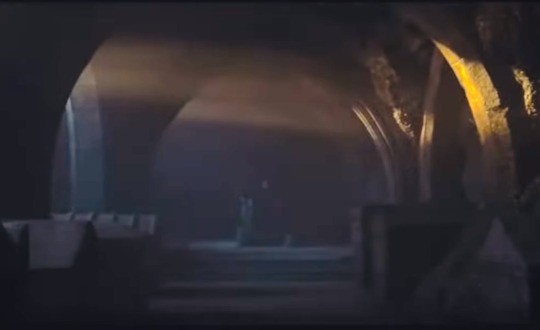
Did his wife, the Countess, survive him, and ordered his sarcophagus to be made? If so, she clearly wanted him to return to life. Maybe she was also involved in sorcery as he was. We also have countless examples of wives taking over their husbands estates/titles after their deaths (even as rulers of Transylvania). Maybe his wife was one of those who reluctantly converted to Catholicism in order to keep the family estate?

“I [was inspired by] a 15th-century sarcophagus from Poland. Orlok is Dacian so I started looking at Dacian dragons. Trajan's Column in Rome shows the battle of the Romans defeating the Dacians and you see their Dacian dragon, which has a wolf’s head, so I started adding wolves’ heads. The feet of the casket are actually Dacian dragons. We came up with a coat of arms for Orlok to put on and added Solomonic symbols. The idea is that the more you stack up the details, the more you’re creating the world.” Production designer Craig Lathrop
Now, we do have “strangling” associated with Orlok and Ellen, right in the prologue, when he reveals himself to her, under the lilac trees:

This is a horror movie, yes, but Robert Eggers is very intentional with his stories and he doesn’t do cheap jump scares. Why did Orlok do this to Ellen? Especially when he just asked her to be one with him ever-eternally. This act does have a meaning we aren’t aware of.
And his first words to her are “You”, and then he says “you wakened me from a eternity of darkness”, and he repeats “you… you”, and says she’s not for the living. This somehow suggest a recognition from his part. He knows not only what she is, but who she is.
Orlok also calls Ellen “enchantress”, and it was her sadness (grief? Heartbreak?) which powered her prayer. She did it unconsciously, and due to her supernatural abilities, but maybe her soul has tried to achieve this in the past? But didn’t succeed then?
Orlok’s “asmatic” speech can also indicate his vocal chords are damaged? Sure, he’s been dead for centuries and has to inhale and exhale in order to be able to speak, because he doesn’t need to breathe (obviously, he’s a walking corpse).
The flaw with this theory is that Orlok doesn’t seem to have neck injuries compatible with death by strangulation.
Hypothesis #2
Another likely option, is that Orlok might have died from the plague, the “Black Death”, during the second plague pandemic in Europe (1346-1844), which known several outbursts throughout these centuries. Which would explain why he returned as the “plague carrier” and his association with rats (since the Black Plague was believed to be caused by the fleas of certain rats).

The plague hit Transylvania particularly harshly during the 15th and 16th centuries, more deathly than before; especially between the years 1550 and 1587. The towns and villages in the Carpathians suffered deeply with the plague in 1553-1554, with countless deaths. Between 1552 and 1554, many aristocrats died, and some territories were even depopulated due to the plague.
The Catholics saw this outbreak as God punishment of His enemies, as divine justice against the heretics (Protestants). Protestants, on the other hand, refused the “plague” Catholic saints (like St. Sebastian) and saw hardship as a path to salvation but also as punishment for pride and other sins, advising against attachment to the “riches of the world”.
Being a Count, in the face of a plague epidemic, Orlok had to work alongside religious and medical authorities to deal with the situation. However, when epidemics got out of control, physicians (doctors) could have full power of decision over the people. Several restrictions to gatherings of every kind were made during this period. Burials on churchs were forbidden. Mentions of rotten corpses and maggots were popular in religious speech to force citizens to keep the plague graveyards clean, and avoid the spread of disease. In “Nosferatu” we have allusions to all of this and even the “Death and the Maiden” motif at the end of the film.
If we take 1538 as Orlok’s birth, these dates (between 1552 and 1554) can’t possibly be his dates of death because he would be a teenager during these years, between 14 and 16 years old. They can, however, be when he became Count? Maybe his father and/or mother also died from the plague? Or even his wife?
The plague epidemic could also be the reason why he became so interested in conquer immortality, tapping everywhere to achieve it: alchemy (“elixir of immortality” and “panacea” to cure all diseases), Zalmoxis cult, and Şolomonari magic. Him dying of the plague anyway would be one of those wicked ironies which would fit his character. His corpse certainly exhibits plague wounds, like the ones on his victims.

However, this would make Orlok younger than Robert Eggers claims he is; but Eggers being so secretive about Orlok background, he can also be concealing his true age, after all. Orlok dying during the Transylvania plague epidemics would make him 49 years old tops or even on his 30s, at the time of his death. Which would fit Lina Muir comments on his hat design being worn by younger men.
Hypothesis #3
If we go with the strigoi folklore, Orlok might have died with “unfinished business”, which is a staple of ghost legends everywhere in the world. The cause of his death, or even the date, is not exactly relevant here.
Connecting with Ellen being a reincarnation of his past lover; she might not have been his wife, at all. The majority of aristocratic weddings were motivated by politics. The wife Bill Skarsgård talks about, might have been chosen for political reasons, and alliances. She might have died, too, and Orlok wanted to remarry (which was the usual practice), this time for love. But, his bride died before the wedding, or he did.
This option would fit this story better, because Orlok and Knock talk about Ellen as “bride”. Even when asking Thomas about his “maiden token”, Orlok calls Ellen “your bride”. It would also give a deeper meaning as to why Ellen put on her wedding dress to marry Orlok at the end.
In this option, Orlok’s bride wasn’t buried next to him in his castle crypt, and death separated them. Which would explain why Orlok is so obsessed in pursuing Ellen’s soul and have her by his side for all eternity.
Şolomonari and Zalmoxis
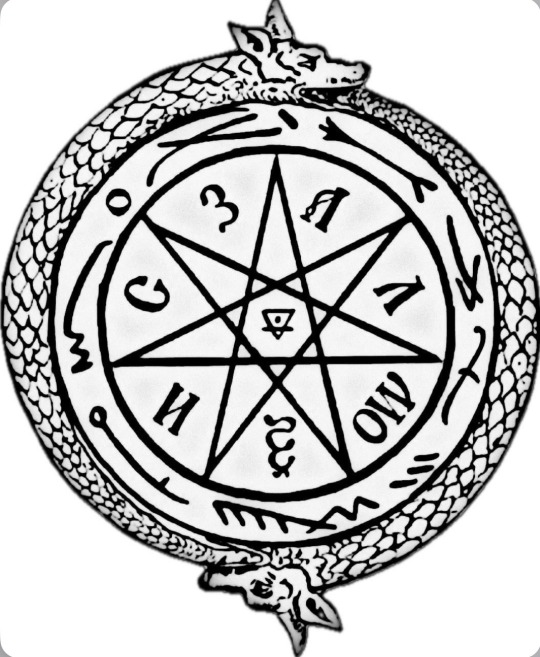
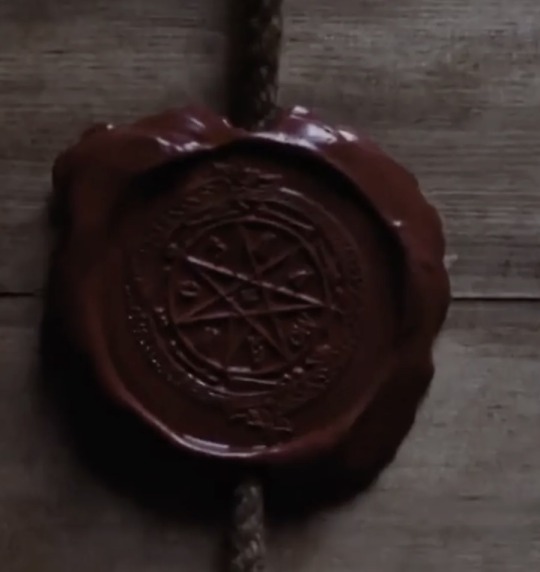
Orlok sigil: an heptagram surrounded by a Draco ouroboros (death; rebirth; reincarnation); the letters are cyrillic for “Zalmoxis”; the center is the alchemist symbol for blood; the symbols appear to be Vinča; with archeological findings in Romania with these symbols being over 8,000 and 6,500 years old, and consider by many as the oldest form of human writing, but their meaning is still unknown. They are here either to show Orlok comes from an ancient bloodline; or he has known reincarnations throughout the ages?
Heptagrams are connected to the seven elements of Alchemy but aren’t represented like this. Heptagrams are also connected to divine feminine goddesses, like Babalon and Isis.
We also see Ellen’s beauty being compared to a sylph by Herr Knock (probably due to his own deal with Orlok), which makes her connection to the 16th century, because “sylphs” were created by Paracelsus, a Swiss alchemist, in 1566 (Orlok would be 28 years old when this book was released). Sylphs are beings of the air element, a sort of fairy or nymph.
The genetics of historical Vlad III, “The Impaler”, “Dracula” can be traced much farther back than the Szekelys and the Huns: he was descendent from the Dacian warriors. And this seems to be the same case with Eggers’ Orlok; or he developed a fascination with them. Aside from his sigil and coat of arms, the audience knows there’s a connection between Orlok and the Dacian civilization, because he speaks Dacian in the film (a language which was already extinct in the 16th century).

The Dacians were a Indo-European people from Ancient times (6th century) which inhabited modern-day Romania (as well as parts of the surrounding countries) and were eventually conquered by the Romans. Their cult was a deity called Zalmoxis, God of life and death, who granted eternal life and knowledge to the worthy, ensuring their place in the afterlife. Sacrifical rites and shamanism were practiced in his honor. Zalmoxis was considered a prophet, represented as a handsome man, a priest who controls the forces of nature, with power over wild animals.
Zalmoxis is kind of a mysterious figure, he’s a man who became a God to his people, and in some legends he was a king, in others a slave of the Greeks who freed himself, while in others he’s the high priest of the actual God of the Dacian people. He’s often compared to Jesus Christ because he, too, was resurrected after being three years underground. According to Herodotus, Zalmoxis learned the secrets of immortality when he traveled to Egypt: we already have a link here with Ellen, because she was compared to a “priestess of Isis” (Isis, the Queen of the Underworld).
Ancient greek historian Herodotus wrote about several Dacian legends and rituals; as the priests of Zalmoxis who kept the secret of incantations that could make human beings immortal, and the ritual practice of wrapping a young man who wished to become a warrior in the skin of a wolf (some men were said to be able to change themselves each year for several days into the form of a wolf). There are some theories among historians that hallucinogenic mushrooms were used in the wolf-pelt ceremony, allowing the men to experience a complete psychological transformation into wolves.
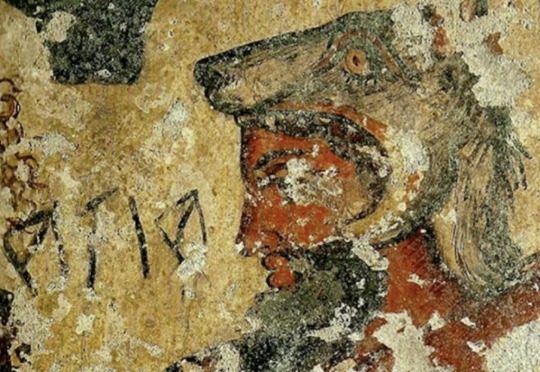
Dacian warrior
Once psychologically transformed into a wolf and thereby initiated into the Brotherhood of the Wolf, the Dacian warrior would enter fearlessly and ferociously into battle under the banner of the Draco, the wolf-dragon. This appeared to be Orlok’s case because he has the Draco on his coat of arms, which he would wear in battle.
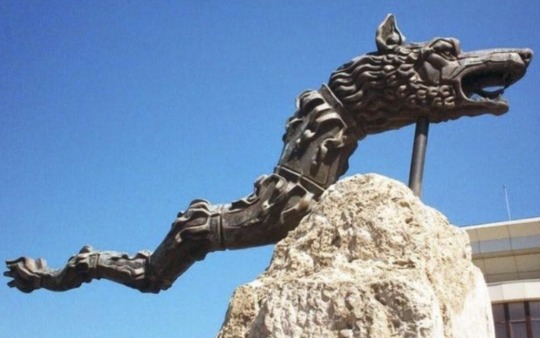
Draco: the Dacian battle flag; Brad (Romania)
We are told this book is Şolomonari by Von Franz, and obviously belonged to Orlok, and it was in Herr Knock’s office:

However the language it is written is Latin-based, so I’m guessing it’s Dacian (instead of the cyrillic Orlok used before in written material). My mother language is Latin-based, I can understand some of the Dacian spoke by Orlok, and I’m recognizing some words here, too. This book is probably from a Zalmoxis cult, which isn’t surprising because this leads us to another question: scholars in recent years have been disputing long-lasting ideas about who the folkloric Şolomonari truly were, which seems to be the approach Robert Eggers is taking with his adaptation of “Nosferatu”.
In the “Dracula” novel, Van Helsing says Dracula attended the school Scholomance. In Romanian folklore, it’s located in the Carpathian mountains where the Devil was the lead instructor of 10 or 13 students. One of each class was either kept by the Devil or given permission to ride a dragon. In “Nosferatu”, the old abbess tells Thomas, Orlok was selected to have his soul kept by the Devil, and, possibly, cursed to vampirism as a result: “A black enchanter he was in life. Şolomonari. The Devil preserved his soul that his corpse may walk again in blaspheme.”
Xenoarcheologist Jason Colavito is one of the pioneers of these kind of studies, exploring science, pseudoscience and speculative fiction, and has done research on the Scholomance and the Şolomonari. He made the connection between Dacian priest-shamans and the folkloric Şolomonari (named after King Solomon and alchemy) and how they were perceived as benevolent forces until the Christians defamed them as “devil worshippers”. This association between Paganism and the Devil wasn’t exclusive to Romania, it happened throughout Europe when European kings and leaders converted to Christianity and forced their populations to forsake their old Pagan beliefs.
The Devil’s School of Scholomance is, then, a distortion of Dacian Pagan beliefs; where Zalmoxis had a underground chamber, a great hall, where he taught the secrets of immortality, and of life and death to his followers. In “Nosferatu”, it’s the Orthodox nuns who first make the association between Orlok, the Şolomonari, and the Devil; and then the alchemist Von Franz does the same. But none of these characters have first-hand knowledge of what the Şolomonari truly are, and Von Franz admits he never encountered a Nosferatu before. And, indeed, there’s no “satanic” symbols on Orlok’s sigil and coat of arms. He’s Pagan, a follower of Zalmoxis.
The question here is: how did Orlok had access to this knowledge? Was there an actual “school” or a Zalmoxis cult in the 16th century, in this story?
#nosferatu 2024#count Orlok 2024#Ellen Hutter 2024#Robert Eggers#bill skargard#bill skarsgård#count Orlok 2024 backstory#Nosferatu 2024 analysis#Transylvanian history#transylvania#Dacian mythology#Zalmoxis myth#strigoi#romanian folklore#ellen x orlok#orlok x ellen
88 notes
·
View notes
Text







BILL SKARSGÅRD as ERIC DRAVEN in THE CROW (2024)
#bill skargard#bill skarsgård#billskarsgardedit#eric draven#the crow 2024#the crow#filmedit#filmgifs#dailyflicks#usermalin#tuserlarissa#good boy version#maybeee i have another version planned 👀👀#*
488 notes
·
View notes
Text
Trouble (Eric Draven x Rebel!Reader)

Bill Skarsgard, covered in blood and acting feral as he violently kills people to avenge the woman he loves?? Yeah, that really did a number on me….but I couldn’t help but fall in love with Eric’s quiet character in the first act so pls enjoy my ramblings! 💕
Eric Draven Masterlist
Word Count- 1.5k+
Summary- Eric's carefully guarded solitude is disrupted by a bold newcomer who seems to be trouble incarnate.

“I wanna get in trouble.”
A voice, sudden and electric, broke Eric from his reverie as a figure’s shadow fell across the intricate lines and shadows of his drawing. He glanced up hesitantly, shielding his eyes from the harsh sunlight behind you. His eyes were met with the sight of you – a tempestuous spirit with wild, untamed hair that cascaded around your face like a mane, defying the order and discipline of this facility. There was a glint in your eyes, mischievous and daring, that seemed to challenge the very atmosphere around you. You loomed above him, a figure of restless energy, waiting for a response that he was unprepared to give.
“What?” he managed, his voice barely above a whisper, a stark contrast to the boldness of your intrusion.
You grinned cheekily, and with an audacity that left him momentarily stunned, you stepped up onto the picnic bench he was perched at, planting yourself so that you were sitting on the table as if it was your own personal stage. Your feet, clad in worn, oversized sneakers rested casually on the seat in a silent declaration of your disregard for rules. “Don’t you?”
Eric blinked at you, his brows furrowed as he hastily pulled his papers closer, as if to shield them from your encroaching presence. “No.”
“No?” you parroted, a suggestive playfulness tone to your voice. “But this place is so boring.”
He glanced around the yard, taking in the stark reality of the rehab facility, his eyes lingering on the chain link fence with its towering barbed wire glinting menacingly in the afternoon sun. “It’s supposed to be,” he said with cold detachment. “And you’re not supposed to be fraternizing with me.”
You followed his gaze, casting a sly look to the guards who stood at the back door, and a smirk danced on your lips. “Uh oh, I wonder what the consequences for that will be.”
Eric wanted to roll his eyes at your attitude. This was how all the newbies were when they came in: brash, defiant and convinced they could outwit the system. They came in with fire in their eyes only for it to be extinguished within days by the crushing reality of their situation. Nobody stayed trouble for long. He watched as their bravado withered, soon to be replaced by resignation. And the ones like you – those who pushed the boundaries with reckless abandon – often found themselves confined to solitary confinement, their spirits slowly eroded by the wright of their own demons.
“You think I could seduce one of these guards to sneak us in some contraband?” you asked, raising your brow in a conspiratorial way as you nodded toward a pair of male guards standing near the backdoor, idly chatting and sharing a cigarette.
Eric’s gaze traveled over you, from the oversized, ugly pink sweatshirt that swamped your frame to the untamed hair that framed your face like a wild halo. You spoke of “us” as if any semblance of companionship existed between you too. There wasn’t. It was just him and his solitary existence. He had no need for friends, no desire for connections – especially not from someone like you.
“No,” he said finally as he returned to his sketch, hoping his blatant disinterest would be enough to drive you away. “You need to get off the table.”
He could feel your eyes on him, your gaze almost too intense. When you tilted your head, studying him in amused disbelief, he knew what was coming. Another newbie thinking they could crack him open like some sort of nut, put together the broken pieces like a puzzle. He kept his attention on the drawing, hoping you’d take the hint and leave him alone.
“C’mon, you don’t look like someone who’s this much of a stick in the mud.” Your voice was playful, teasing but Eric could sense the challenge beneath it. His silence seemed to fuel you, as if his resistance was exactly what you were hoping for. “What’s your name anyway?”
He hesitated, hating how you were forcing him to interact with you like some needy puppy. “Eric,” he muttered, keeping his gaze locked on the drawing.
“Eric,” you tasted his name on your lips quietly. It grated on him, the way you spoke as if you already knew him, already had him all figured out. “You’re an artist, huh? I bet you’re all dark and broody, right? The strong, silent type?”
His jaw tightened, his pencil pressing a little too hard against the paper. He didn’t want to give you the satisfaction of getting a reaction out of him, but he could feel your words digging right under his skin. Dark and brooding? Strong and silent? You didn’t know anything about him, didnt understand the darkness that lingered in the corners of his mind, the weight of the silence he carried, yet here you were, already trying to pin him down with labels. And typically, Eric didn’t care what anyone else here labeled him with, but your unnervingly amicable voice was something he wasn’t used to. It was almost laughable, except it wasn’t. It was annoying.
Your words struck a nerve. He remained quiet, instead choosing to focus on the shading in the corner of his page, tried to drown out the sound of your voice, but he knew his silence was betraying him. The tension in his jaw, the way his grip on the pencil tightened – it all gave him away, and he could almost feel you noticing it, filing it away for later. God, why couldn’t you just leave him alone?
Then you leaned in closer, your voice dropping to a whisper for only his ears to hear. “You know, I think you want to get into trouble. You’re just too scared to admit it.”
His eyes snapped up to meet yours before he could stop himself, his heart racing at the sudden intensity in your eyes. And there was something in your gaze that unsettled him. Annoyance flared up first, hot and defensive. But beneath that, he felt a flicker of . . . curiosity. And he hated that too – hated that you were getting under his skin. What the hell did you even know about him? What gave you the right to pry into his life, his thoughts.
“You don’t know anything about me,” he retorted, his voice sharper than he intended, the words escaping in a rush of defensiveness.
You shrugged, unbothered by his tone, a playful smile tugging on your lips. “Maybe not yet, but I’m good at figuring people out. And I think you’re bored out of your mind here, just like me. You’re dying for something – anything – to happen.”
Eric shook his head, forcing himself to look back down at his sketch. “You’re wrong.”
Even to his own ears, the denial sounded weak, and that only served to deepen his irritation.
You let out a dramatic sigh, stretching your arms overhead, and Eric resisted the urge to glance up. “Well, if you change your mind, you know where to find me. I’m always up for a little fun.”
“Fun,” he echoed, the word leaving a bitter taste in his mouth. He wasn’t even sure why he bothered to respond, but something about your persistence was unraveling him bit by bit. “That's what got us in here in the first place.
You paused, and for a second, Eric thought maybe he had finally shut you up. He looked up and caught a flicker of something else in your expression, something serious that made his chest tighten with a feeling he couldn’t quite name. But just like that, it was gone, replaced by that infuriating grin.
“Maybe,” you said, your voice softer, thoughtful in a way that made him uneasy. “But maybe that’s what will get us out of here too.”
Eric watched as you slid off the table, landing lightly on the ground. For a moment, he thought you might actually leave him alone, and the relief that washed over him was sweet. But then you turned back, hands stuffed into the pocket of that oversized sweatshirt, your grin still in place – though it didn’t seem to reach your eyes quite the same as before.
“See you around, Eric,” you said before sauntering off, as if you didn’t just turn his whole world upside down in a matter of a few minutes.
He stared after you, watching as you kicked at the feet of another unsuspecting patient who grumbled at you as you passed. His mind raced, his drawing forgotten, the lines and shadows now blurring together in an indistinct mess. He hated how you so easily managed to disrupt his carefully-constructed isolation, how you made him think about things he thought he’d buried a long time ago. He wanted to believe you were just another reckless newbie, just another faceless patient in a sea of addicts who would burn out soon enough. But something in the pit of his gut told him you were different – something he couldn’t shake.
In the silence that followed your departure, Eric was left to grapple with the realization that the trouble you brought was not just a disruption, but a catalyst for change, a challenge to his solitude. And now as he returned to his meaningless drawing, he wondered briefly if perhaps your indelible, chaotic presence was exactly what he needed to rewrite his own story in the hell hole.
And that scared him more than he’d like to admit.
Tagging some of you who seemed interested!
@apolloanddaphnis @one-of-thewalkingdead @m00npjm @maimai-0603 @redwitchbitch1 @at-midnight @fandom-fanatix @spoiled-bat13 @alinahdee @mrsalwayswrite

#i’m just a girl#I see a sexy man covered in blood and I have to fantasize#i could go on#the crow#bill skarsgard x reader#bill skargard#the crow 2024#bill skarsgard imagine#bill skarsgard fanfiction#eric draven#imagine#eric draven x reader#eric draven x you#bill skarsgard x you
514 notes
·
View notes
Text








BILL SKARSGÅRD as Willard Russell in The Devil All The Time (2020) | dir. Antonio Campos
#willard russell#the devil all the time#antonio campos#bill skargard#bill skarsgård#bskarsgardedit#cinemapix#cinematv#cinematicsource#filmedit#filmtvgifs#filmtvsource#filmtvcentral#filmtvdaily#filmtvedit#filmtvtoday#tvfilmsource#tvfilmdaily#tvfilmedit#usersource#dailyflicks#filmandtv#cinemasource
269 notes
·
View notes